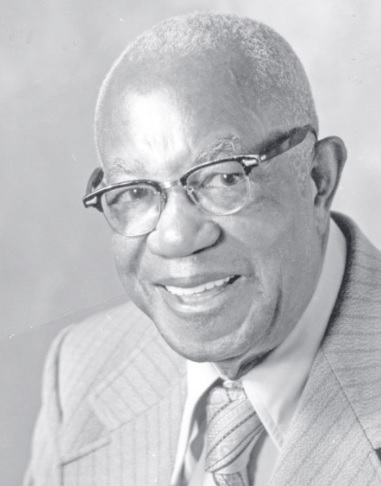
By Bob Dickerson
Special to The Times

We could start a huge argument about whether we should celebrate Black History Month. Many, me included, think the history of black people in America and all over the world should be broadly and consistently told, however, my sense of reality says that is unlikely, so I’ll go along with Black History Month, a month during which we celebrate black heroes.
The usual names and deeds of the likes of Booker T Washington, Sojourner Truth, Mary McCloud Bethune, George Washington Carver, Marcus Garvey are etched in our minds. So, as I contemplated this piece I decided that what black history misses is the celebration of our entrepreneurship therefore, my goal is to have us elevate black entrepreneurs, past and present, to heroic status.
The early 20th century saw blacks, still struggling against Jim Crow policies, continue to grow enterprises. Durham, North Carolina may best depict black business success as records show that in 1906, the North Carolina Mutual Life Insurance Company, the nation’s largest black-owned insurance company was soon joined by the Mechanics and Farmers Bank and the rest as they say is history- Black History as Black Wall Street was established. Durham’s population of five thousand or so blacks’ social and economic development is perhaps more striking than that of any similar group in the nation. Black business heroes, the “triumvirate” of John Merrick, Dr. Aaron M. Moore, and Charles Clinton Spaulding, branded their already successful endeavor, “The Company with a Soul and a Service”.
Obviously, A. G. Gaston was inspired by the success of North Carolina Mutual as he created and vertically integrated a funeral services and burial insurance company. Smith and Gaston Funeral services, a company that still exists today and Booker T Washington Insurance Company were huge successes catapulting Gaston to rarified air as an entrepreneur who eventually would be named by Black Enterprise Magazine as its “Entrepreneur of the 20th Century”.
Next week’s conference, the 13th Annual A. G. Gaston Conference in Birmingham, recognizes his contributions, his courage, his acumen, and his ability to succeed against the odds which were then and are now stacked against business owners but heroes, like Gaston, overcome them.
Traditional scholars who wrote about the contributions of historical blacks like the ones mentioned before have not typically known, recorded or promoted the history of black enterprise.
Here’s a good example. W. E. B. Dubois is often cited and recognized during Black History celebrations for his promotion of the “talented tenth”. Very few, however, know that in 1898 Dubois published a seminal work, “The Negro in Business” in which he writes, “For a Negro then to go into business means a great deal. It is, indeed, a step in social progress worth measuring”.
Following in Gaston’s footsteps are business heroes Jesse Hill, founder of Atlanta Life, Dorothy Brunson, the first African American to own a full power radio station, Herman J. Russell, a pivotal player in Atlanta’s rise as a mecca for black achievement, and Reginald Lewis, who helped black companies secure capital and later purchased a division of Beatrice Foods which at the time was the largest leveraged buyout of overseas assets by any American firm.
So, as we focus on the achievements of black Americans, let us not lose sight of the fact that we have always believed in entrepreneurship and self-help. Let us always remind ourselves and others that success runs in our race. Let us celebrate blacks who have started businesses, created jobs, helped our communities develop economically and became role models for others to follow. Let’s celebrate black business owners and elevate them to heroic status.
Bob Dickerson is executive director of the Birmingham Business Resource Center and organizer of the A.G.Gaston Conference which begins on Tuesday, Feb. 14. Registration is underway at www.aggastonconference.biz



